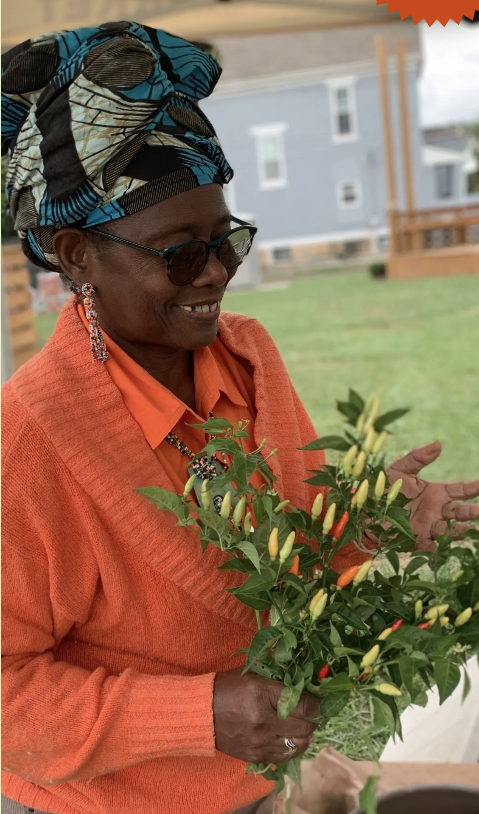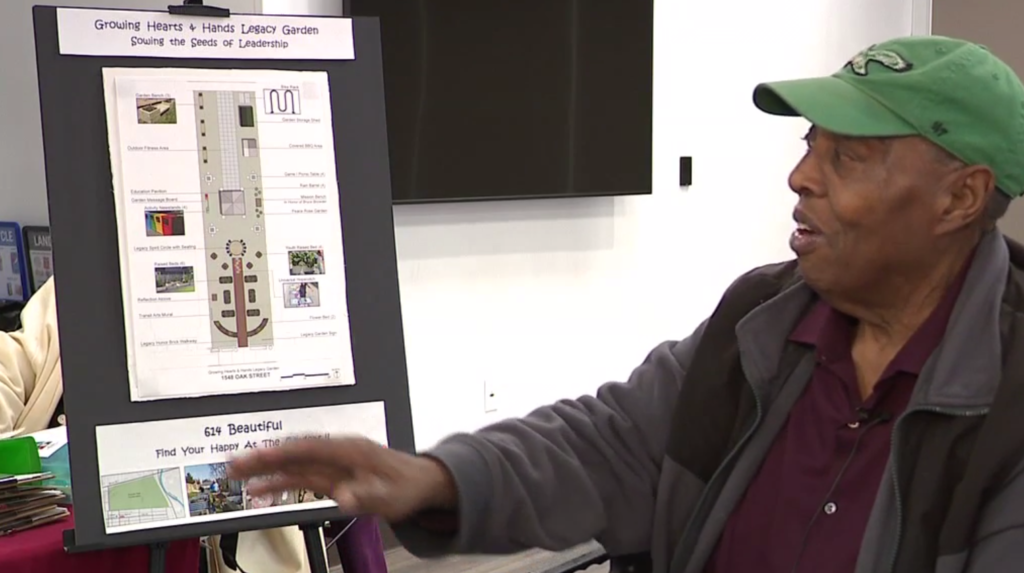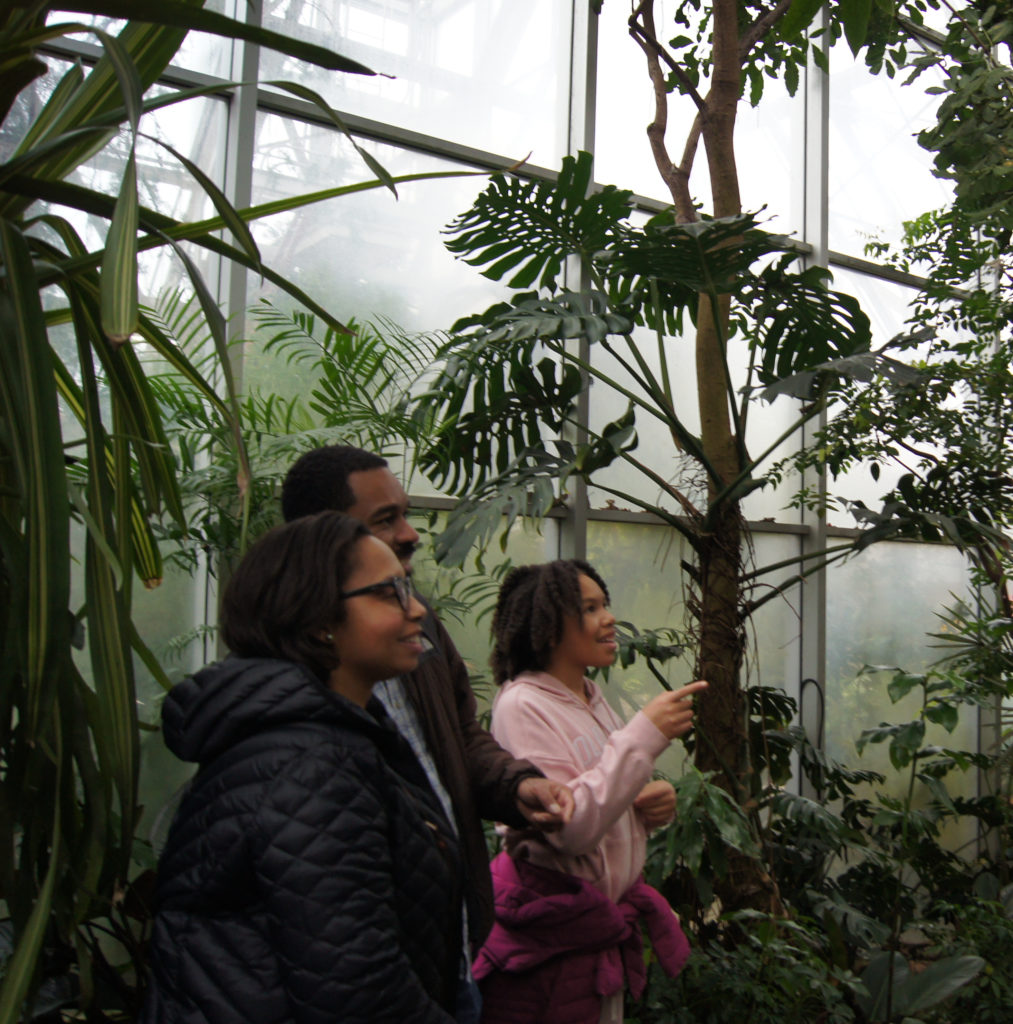Published February 22, 2023
- Home
- Conservatory Cultivators
- Harmony, Soul & Heritage
Published February 22, 2023
What do coffee, rooibos tea, palm oil, shea butter, watermelon, black eyed peas, collards, okra, yams and millet have in common? They are all food crops originally domesticated in Africa that have played an important role in the development of American cuisine and culture.
During the Conservatory’s free February Community Day, Dr. Julialynne Walker, a local food justice activist and co-founder of Bronzeville Growers Market and Agricademy, spoke about the many ways that pan-African foods and growing practices continue to have an enduring influence on American foodways and how urban growing can reduce food inequality.
Dr. Walker’s talk engaged a packed house of community gardeners and neighbors, fitting into a beautiful daylong celebration in honor of Black History Month and Near East Side neighborhoods like Franklin Park, King-Lincoln Bronzeville and Olde Towne East.

Dr. Julialynne Walker
An on-site resource fair and vendor market presented in collaboration with Making a Difference brought together Black artists, artisans and makers, as well as community gardeners like Richard M. Harris of Growing Hearts and Hands Community Garden, located on Oak St. just a few blocks from the Conservatory.
Mr. Harris, a community gardener who was recently recognized during the Conservatory’s Harvest award ceremony, presided over a booth highlighting the contributions of Black locals such as Rick Singletary, Rev. Melvin Steward Sr. and Carl L. Brown Sr. who have helped to nourish the Near East Side for the last hundred years. A bowl of peanuts in the center of the table invited visitors to munch on a snack while learning more about George Washington Carver and his contributions to agriculture. “We want to be here, we want to grow, we want our children to grow,” said Harris about his hopes for the future of the historically Black Near East Side.

Mr. Harris during Community Day on February 5
Other organizations that tabled on-site included the Father 2 Father program with Columbus Urban League, representatives from the nearby YMCA Eldon and Elsie Ward Branch, St. Paul AME Church, Experience Columbus and the Franklin Park Civic Association.
While the day offered rich opportunities to learn and engage with topics of social and racial justice, it was also a lovely day to simply relax and enjoy the Conservatory’s gardens, biomes and the Cardinal Health Gallery. Visitors strolled through the current exhibition, El Color – ES, which features artwork made of Ámate traditional bark paper dyed organic materials by local Latinx artist Elena Osterwalder. Two lively performances by local band Harmonic Soul activated the John F. Wolfe Palm House with rhythm and energy, and 2,361 people enjoyed respite from the gray skies outside by exploring the summertime-themed Orchids exhibition currently on display through March 12.
Community Days, including our February Black History celebration, are a monthly opportunity for any Franklin County or City of Columbus resident to visit the Conservatory free of charge, allowing neighbors of all backgrounds to experience the Conservatory regardless of ability to pay. The Conservatory strives to host exciting programs, activities, live performances and special guests during Community Days, helping to make the whole Columbus community feel welcome while reflecting diverse cultures.

Family enjoying the Rainforest Biome during Community Day
Upcoming Community Days are planned for March 5 in celebration of Women’s History Month, and April 2, which will feature a Japanese springtime festival in partnership with Japan America Society of Central Ohio. Community Days are made possible thanks to generous support from sponsors such as Columbus Metropolitan Housing Authority, Fifth Third Bank, Franklin Park Conservatory Women’s Board, Huntington, and Medical Mutual.
Choose how you would like to give